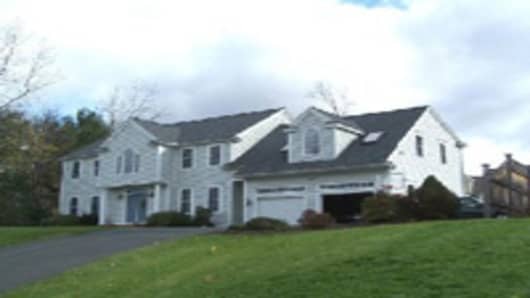While the housing market isn’t out of the woods just yet, the New England region appears to be living up to its reputation as a trend setter.
Andrew Leventis, senior economist with the Federal Housing Finance Agency says the New England market, which, according to the FHFA, includes Maine, New Hampshire, Vermont, Massachusetts, Rhode Island and Connecticut “has generally been a price leader."
“They went into the boom a little earlier than other regions and they went into the bust a little earlier,” he says adding that “consistent with that, prices have leveled off and are showing a little more strength in that part of the country than other parts of the country.”
According to numbers recently released by the FHFA, for the 12-month period between July 2008 and July 2009, prices for home sales in the U.S. declined 4.2%, compared to a more modest decline of 2.5% for the New England region.
“Most of the New England market has seen a bit of a moderation over the last 12 months,” says Ken Sears, an economist with the National Association of Realtors, who adds that while the market is still a little sluggish it is “definitely getting back in its feet”.
While prices are still down year-over-year, “they are not down as far down as earlier this year, " he says. "We are finding a bottom."
Rick Loughlin, president of Coldwell Banker Residential Brokerage in New England says the big distinction is that “we are not a speculative group of people. Instead [New Englanders] tend to be very conservative and don’t get into as much speculative behavior.”
“That’s why prices didn’t drop as much,” he says, adding that there weren’t a lot of people who got into that market trying to flip a home and make a quick dollar.
While activity in New England may be picking up, only certain pockets of the market are feeling the love.
According to Loughlin, the homes that are moving are those that are “well priced, well located and well conditioned homes.” Those, he says, ”are the hot button.”
In addition, Sears of NAR agrees, that in general there has also been lot more people coming in the lower to middle markets as well as among homes that are in close proximity to downtown areas, which offer residents short commutes to work.
Additionally, he says “first-time home buyers are really dominating sales, with conforming loans.” This is particularly true, he says, of buyers obtaining loans insured by the Federal Housing Administration, the number of which has surged in New England and other regions.
The federal tax credit has also played a large role in the increase of first-time home buyers
But while there are clearly pockets of strength, other parts of the market—the high end, for one—continue to suffer.
“A lot of the high-end buyers and sellers were caught in the [financial] meltdown a year ago,” Loughlin says. “Even though activity has increased in some markets it is much more sporadic.”
The same is true of the market for second homes, which is a market that generally attracts buyers with higher incomes.
Rates for jumbo loans and for second home mortgages are much higher now, which limits the number of buyers.
The market for new construction also remains nearly stagnant.
“Financing has been turned off for builders,” Coldwell Banker’s Loughlin says, adding that while there is some movement in new construction homes priced under $400,000, for the most part builders “are pretty much dead in the water.”
What's more, states such as Connecticut and Rhode Island have generally fared worse than others in the region, partly because of high unemployment levels. Rhode Island, for example, has had one nation's highest jobless for much of the year.
Coastal markets have also had a rough time, partly because they are fairly dependent on second-home buyers, who are having a tough time getting financing.
That said, given the general decline in prices, those who have the cash to qualify for a conforming loan—whether it's for a first or second home—will find it a great time to buy, say realtors.
“Rates are low, prices have come down and the [for first-time home buyers] the tax credit is out there,” said Loughlin. “Be carefully not to get caught in the squeeze,” he said, adding that it’s just a matter of time before interest rates and home values start to go up.



